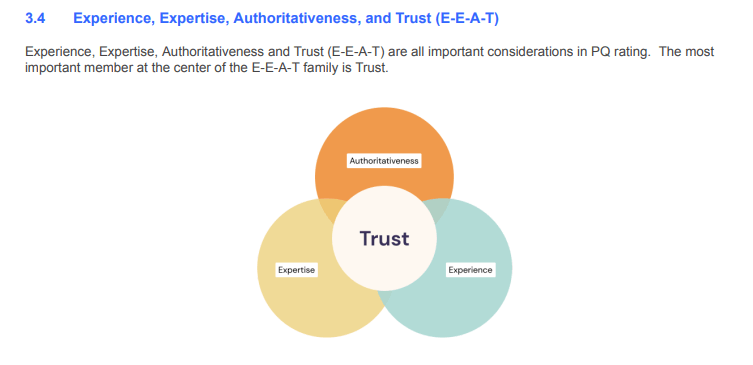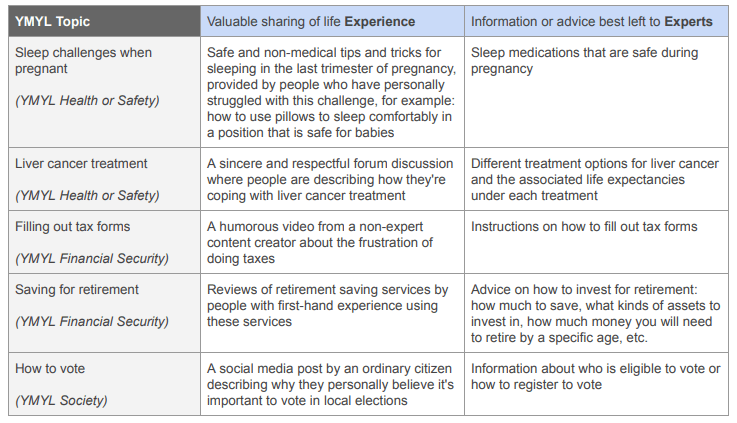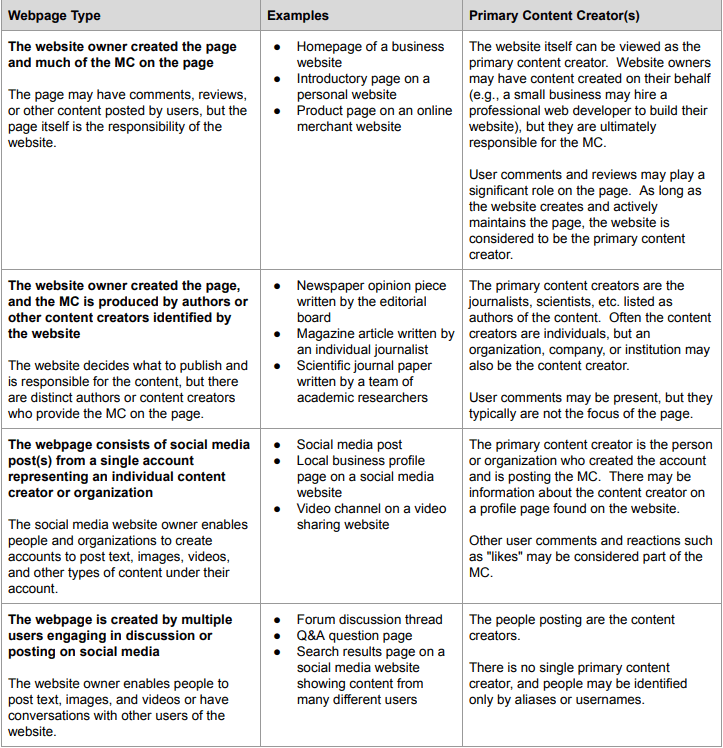Google’s Search Quality Raters Guidelines Receives December Update
As many brands in the UK look to wind down after a busy winter period, Google has released some major changes to their quality rater guidelines for search.
The guidelines are used by Google’s search raters who help evaluate the performance of the systems used for search ranking. However, the document also helps content creators looking to self-assess their own success in search.
Google updates this document once or twice a year, with their last update being in July, however the latest update came last Thursday (15th December) with a whopping 11 new pages added.
The headline of the whole update is the change to Google’s E-A-T system, which has found itself with a new letter prefixed: E for Experience.
You can find the announcement from Google on Twitter here:
To better assess our results, E-A-T is gaining an E: experience. In addition to expertise, authoritativeness, and trustworthiness, does content demonstrate some degree of experience? Learn more about how E-E-A-T is now part of our search rater guidelines https://t.co/8hCj1Gk49S
— Google Search Central (@googlesearchc) December 15, 2022
The E-A-T system is used by Google to evaluate whether their search ranking systems are providing both helpful and relevant information to users. If a website can showcase their Expertise, Authoritativeness, and Trustworthiness, then they could be more likely to rank higher in search results.
Now referred to as E-E-A-T, or ‘Double-E-A-T’ if you’re cool, the system is now taking experience into account when assessing search results.
However, I prefer this take from Nati Elimelech from Wix:
This could have been E-TEA. Missed opportunity. pic.twitter.com/6ehaK2vzWD
— Nati Elimelech (@Netanel) December 15, 2022
Meet E-E-A-T
Previously known as E-A-T, Google’s new acronym, E-E-A-T, stands for:
- Experience.
- Expertise.
- Authoritativeness.
- Trustworthiness.
The introduction of Experience indicates that website owners and creators must have some first-hand knowledge on the topic or product they are producing content on, and this will factor into how Google values the quality of your webpage. Simply put by Google in the update:
Does content also demonstrate that it was produced with some degree of experience, such as with actual use of a product, having actually visited a place or communicating what a person experienced?”
The updated E-E-A-T is described in full in Section 3.4 of Google’s updated Quality Rater Guidelines. Google says that Trust is ‘the most important member at the centre of the E-E-A-T family’ with Experience, Expertise, and Authoritativeness being ‘important concepts that can support your assessment of Trust’.

Where Does Experience Differ from Expertise and Authoritativeness?
Google admits that there may be some overlap between Experience, Expertise, and Authoritativeness for some page types and topics with the example of, ‘someone may develop Expertise in a topic due to first-hand Experience accumulated over time’. They recommend considering the purpose, type, and topic of your content and to ask yourself ‘what would make the content creator a trustworthy source in that context?’.
In the context of Page Quality rating, Google recommends that your assessment of E-E-A-T should be informed by:
- What the website or content creator say about themselves: Does your site have an About Us page, or Profile page with more information about the content creator?
- What others say about the website or content creators: Is there independent evidence that your site has E-E-A-T?
- What is visible on the page, including the main content and sections such as reviews and comments: Does your content represent your level of Experience and Expertise for itself?
YMYL Topics: Experience or Expertise?
It’s widely known that a high level of Expertise may be required for Your Money or Your Life (YMYL) pages to be trustworthy. However, with Experience being in the acronym, how does this affect the quality of YMYL pages?
Google explains that YMYL pages can sometimes be ‘created to share personal experiences, often regarding difficult life challenges’ and that ‘people turn to each other in times of need to share their own experience, seek comfort or inspiration, and learn from others’.
The following table was created to show examples of where Experience and Expertise are relevant for YMYL pages:

Who Runs the Site (And What is Their Reputation)?
In Understanding the Website (Section 2.5), Google implies that it is important to express who owns the website; referring to the reputation of those who are contributing to the website rather than just the website itself:
To understand a website, start by finding out who is responsible for the website and who created the content on the page. Then, look for information about the website and/or content creators on the website itself.
In Finding Who is Responsible for the Website and Who Created the Content on the Page (Section 2.5.2), Google states that the owner of the website should be clear to showcase who is responsible for a site.
Previously, Google looked at which individual, company, business, or foundation was responsible for the site. However, in this new update, Google has replaced ‘foundation’ with ‘organisation’ and ‘government agency’.
The following table was also added to the updated document to help identify who created main content on a webpage.

In Reputation of the Website and Content Creators (Section 3.3), Google added that ‘reputation research should be performed according to the topic of the page’; giving the example that pages containing medical information should be assessed on their reputation on the topic.
What This Update Means for You
Whilst this update to the quality rater guide seems rather huge, not much will change in terms of SEO strategy. At Fusion Unlimited, E-A-T is fundamental within our SEO strategy for our clients and the implantation of Experience allows brands to further flex their trustworthiness around their topic or niche.
If you’re worried that Experience isn’t represented on your site, say hello to the Fusion Unlimited team to see how we can help incorporate E-E-A-T into your SEO strategy.
by Jack Bell





